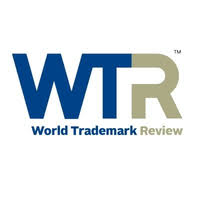Cancellation case provides warning to appellants to the General Court
Par Richard Milchior, le 16 février 2022
Article publié dans World Trademark Review

– The EUIPO cancelled the mark MALLE on the basis of both Article 7(1)(b) and Article 7(1)(c)
– On appeal, the appellant raised only one claim alleging that ‘Malle’ was not a geographical indication of origin
– The court found that it is not possible to justify the annulment of a decision based only on one aspect of reasoning
On 15 December 2021 the General Court issued its decision in Lück v European Union Intellectual Property Office (EUIPO) (Case T-188/21).
Background
It is a well-known principle established by case law: when a mark is cancelled by the EUIPO on the basis of one of the absolute grounds for refusal, it is not necessary to examine the other grounds for refusal.
In the case at hand, the mark MALLE was cancelled on the basis of both Article 7(1)(b) (descriptiveness) and Article 7(1)(c) (lack of distinctiveness) of Regulation 2017/1001.
To challenge the cancellation, the appellant needed to demonstrate to the General Court that the Board of Appeal of the EUIPO was wrong on both counts. However, the appellant articulated only one claim alleging that the designation ‘Malle’ was not a geographical indication of origin, but a fanciful term. The decision of the Board of Appeal was thus based on an “erroneous appreciation of the prerequisite and scope of a geographical indication”.
Decision
The General Court stated that it was unclear whether this claim concerned the part of the decision based on Article 7(1)(c) or that based on Article 7(1)(b) of the regulation. However, by linking the part of the brief mentioning the geographical indication to other parts of the brief, it found that the claim attacked only the part of the decision based on Article 7(1)(c).
Since the appellant did not even challenge the part of the decision based on Article 7(1)(b), the General Court confirmed the Board of Appeal’s decision without having to examine the claim attacking the part of the decision based on Article 7(1)(c). Indeed, the part of the decision based on Article 7(1)(b) was in any case sufficient to justify the decision.
This article first appeared on WTR Daily, part of World Trademark Review, in January 2022. For further information, please go to www.worldtrademarkreview.com.

